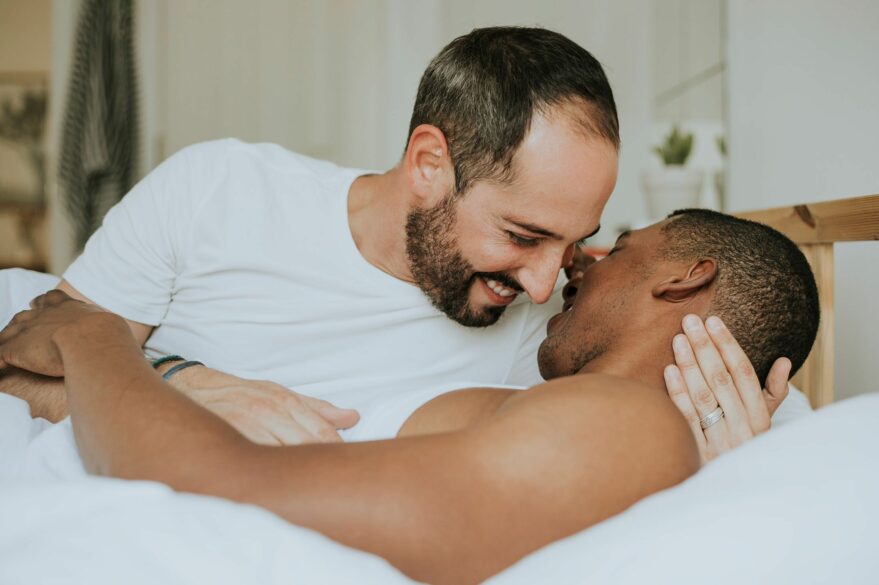
Gonorrhoea
Gonorrhoea is a sexually transmitted infection caused by bacteria. Gonorrhoea can be found in semen or vaginal fluids and can infect the urethra (wee tube), cervix, rectum (bum hole) and in rarer cases the throat.
Gonorrhoea is the second most common sexually transmitted infection in the UK. Most people affected by Gonorrhoea are under 25 (but it can affect people of all ages). Sometimes people call Gonorrhoea ‘the clap’.
How is Gonorrhoea passed on?
Gonorrhoea is a sexually transmitted infection, which means it can be passed on through unprotected vaginal, oral or anal sex. It can also be passed on through sharing sex toys such as vibrators, strap-ons and butt plugs. In some cases, Gonorrhoea can also be passed through pregnant people to their baby.
The bacteria that is Gonorrhoea cannot survive outside the human body for long. It cannot be spread by kissing, hugging or sharing bathrooms.
Using the appropriate contraception and prevention methods can stop the spread of Gonorrhoea. Using condoms and dental dams during vaginal, anal and oral sex can help avoid infections, and using condoms on shared sex toys as well. Always wash your toys and use a new condom with partners to help prevent spreading Gonorrhoea.
How do I know I have Gonorrhoea?
About 50% of people with vaginas and 10% of people with penises will experience no symptoms, so the best way to know if you have Gonorrhoea is to get tested. Anyone who is sexually active can get gonorrhoea. However, in 2019 there were over 70,000 cases of gonorrhoea in England, with most effecting men who have sex with men, making this group disproportionately affected.
Symptoms include:
- Vaginal discharge that is watery and yellow/green in colour
- Discharge from the penis or anus that is white, yellow or green.
- Itching and soreness in the affected area
- Pain or burning sensations when weeing
- Bleeding between periods (rarer)
- Pain in the testicles or an inflamed foreskin (rarer)
- A sore throat
How can Gonorrhoea be treated?
Gonorrhoea is a bacterial infection; this means it can be treated with antibiotics. Most people are treated for gonorrhoea with one antibiotic injection (usually into the butt cheek or thigh) and one antibiotic tablet. After this your symptoms should improve in a few days.
You then attend a follow up appointment 1-2 weeks after the injection to make sure the Gonorrhoea has gone. If it hasn’t, you will be given another injection or antibiotic tablet.
Remember that Gonorrhoea can take up to a week to appear in tests, so it is important to wait at least 7 days since you last had sex to test if you think you have been infected. You can catch Gonorrhoea even if you have had it before.
Should I test for Gonorrhoea?
All sexually active people should test for Gonorrhoea every 12 months as part of their yearly full sexual health screening. A full sexual health screening is when you are tested for a range of different sexually transmitted infections.
If you think you may have symptoms of Gonorrhoea you should go for a test as soon as possible. If you have recently changed sexual partner or are having unprotected sex with multiple people, you should consider going for a full sexual health screening every 3-6 months.
During your testing a doctor or nurse will take a urine sample and swabs from the throat, genitals and anus (butt hole).
Gonorrhoea that goes untreated can spread to other parts of the body and cause serious problems, though is unlikely to lead to any complications if treated early.
It can cause pelvic inflammatory disease (PID) in people with vaginas, and for people who are pregnant, it can cause premature births and miscarriages. For people with penises, it can cause infection of the testicles and prostates glands, as well as reduce fertility in some cases. In rare cases, it has been known for people to develop sepsis (life-threatening infections that attacks your body).
Where can I test for Gonorrhoea?
You can get a test for Gonorrhoea at a range of sexual health clinics (sometimes called GUMs) across Liverpool City Region.
You can also test at your GP or community services.
Get Support From Us

BHA For Equality
0330 128 1186
Free & confidential sexual health services for Black, Asian, and Minority Ethnic communities.

George House Trust
0161 274 4499
Free & confidential support, advice and advocacy services for people living with HIV.

LGBT Foundation
0345 3 30 30 30
Providing advice, support and resources for LGBT people to take control of their sexual health and wellbeing.
